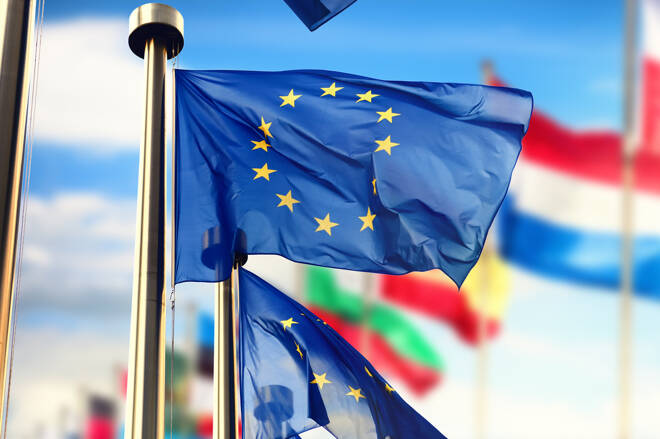Advertisement
Advertisement
EU Lawmakers to Vote on Crypto Regulatory Framework
By:
Proof-of-Work cryptos come under scrutiny today as EU lawmakers vote on Markets in Crypto Assets (MiCA), the EU's crypto regulatory framework.
Key Insights:
- EU lawmakers will vote on MiCA today that could restrict PoW cryptos.
- Russia’s invasion of Ukraine has expedited the passage of Mica.
- Non-EU countries will need to follow the US and the EU with a more robust regulatory framework.
Concerns over Russians evading sanctions via the crypto market have expedited the passage of the EU’s Markets in Crypto Assets (MiCA) regulatory framework.
EU Lawmarkets to Vote on MiCA
Today, EU lawmakers will vote on MiCA. Lawmakers have been working on MiCA for some time now. Russia’s invasion of Ukraine and US President Biden’s Executive Order has expedited MiCA’s progress to today’s vote.
While the markets have anticipated greater regulatory oversight, Proof-of-Work (PoW) cryptos have only become a target in recent months.
Initially, MiCA had included language banning digital assets with environmentally unsustainable protocols that include PoW cryptos. While the language in the latest draft is softer, lawmakers have continued to target PoW cryptos.
According to media reports the latest draft states,
“Crypto-assets shall be subject to minimum environment sustainability standards with respect to their consensus mechanism used for validating transactions, before being issued, offered, or admitted to trading in the Union.”
The above language targets Bitcoin (BTC), Ethereum (ETH), and others.
MiCA’s vote comes following calls by ECB President Christine Lagarde to vote through the framework.
MiCA Could Satisfy Calls to Ban Proof-of-Work Mining
Last month, ECB President Christine Lagarde addressed the media at a live Informal Meeting of Ministers for the Economy and Finance.
At the live event, Lagarde stated:
“The ECB and all national central banks in the euro system will implement decisively and rigorously all the sanctions decided by the EU and the European governments.”
During the Q&A, Lagarde had called on lawmakers to progress a proposed regulatory framework for digital assets known as MiCA. The ECB President noted that there are always criminal ways to circumvent a ban.
For that very reason, Lagarde highlighted that it is critically important to push through MiCA as quickly as possible to provide a regulatory framework.
Lagarde also said:
“It’s all very well to be in cryptos, but that’s not it. You have to move from cryptos to stablecoins to eventually fiat currencies. Now there are ways, whether DLT or not, to actually pierce that veil and to make sure that criminal activity is actually pursued and properly dealt with.”
The ECB President’s press for MiCA and comments responded to questions on Russia evading sanctions by using crypto.
Lagarde has not been alone in calling for an EU regulatory framework for cryptos.
In January, the European Securities and Markets Authority (ESMA) vice-chair Erik Thedeen called for a ban on PoW mining. The vice-chair spoke of the risks that PoW mining poses to the environment.
A similar call came from Hungarian Central Bank Governor Gyorgy Matolscy in February. Matolscy proposed a European-wide ban on crypto trading and mining.
With lawmakers pressed to ensure Russia cannot evade sanctions via the crypto market, today’s vote will draw plenty of interest and scrutiny.
The timing of the vote coincides with news of Russian shifting cryptos to the UAE to evade sanctions.
About the Author
Bob Masonauthor
With over 28 years of experience in the financial industry, Bob has worked with various global rating agencies and multinational banks. Currently he is covering currencies, commodities, alternative asset classes and global equities, focusing mostly on European and Asian markets.
Advertisement
